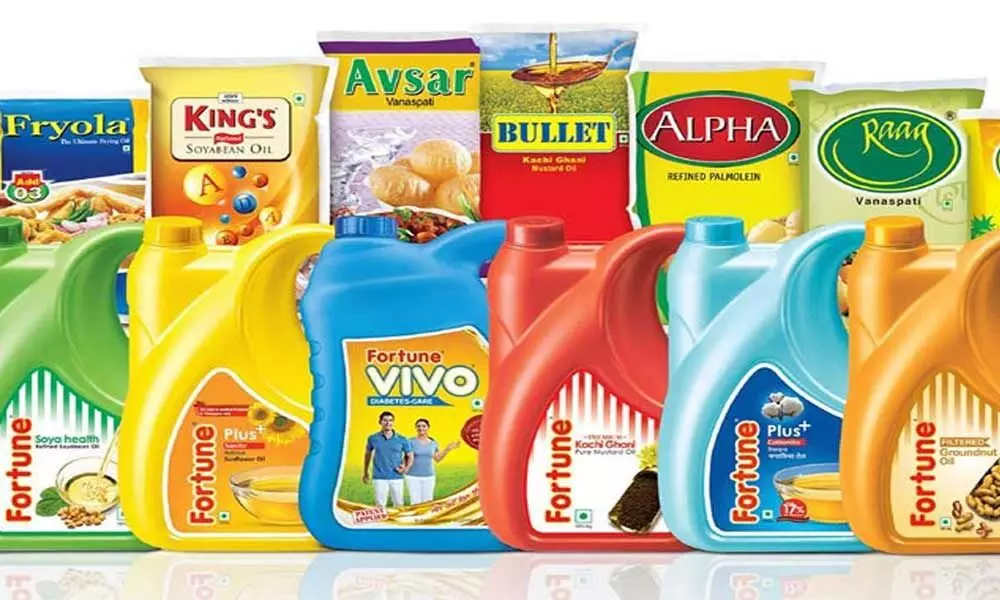Adani Wilmar IPO: Buying on listing may offer better prospect for investors
Investors should invest in the company with a high risk as listing gains may not be very large. Year 2021 saw most companies return 40-60% in majority of the cases. This company may not give those returns
image for illustrative purpose

Adani Wilmar Limited, which is tapping the capital markets with its fresh issue of Rs3,600 crores, completed allocation to anchor investors. The company allotted 4,08,65,217 shares at the top end of the price band of Rs230 to 11 anchor investors comprising of 15 entities. The price band is Rs218-230 and the issue opens on Thursday (January 27) and closes on Monday (January 31).
The highest allocation was made to Government of Singapore as it's allotted 1,60,27,180 shares or 39.22 per cent of the anchor book. Its associate, Monetary authority of Singapore was allotted 35,38,015 shares or 8.66 per cent of the anchor book. Together, the two entities were allotted 1,95,65,095 shares or 47.88 per cent of the anchor book. This kind of allotment is unparalleled in recent times and speaks volumes of the comfort that the Singapore government has in its Singaporean company Wilmar International who owns an equal share in the company that Adani owns in Adani Wilmar Limited.
This was followed by four entities being allotted an identical 32,60,855 shares or 7.98 per cent of the anchor book. These entities were Nippon mutual fund, Jupiter India Fund, Winro Commercial (India) Limited and Dovetail India Fund Class 6 shares. This was followed by HDFC Mutual fund who was allotted 7.45 per cent of the anchor book.
The company Adani Wilmar Limited is into the business of edible oils, packaged foods company, stearic acid, glycerine and the largest exporter of castor oil. It has a 50:50 JV partner in Wilmar International limited and post this issue, both partners would hold 44 per cent each in the company. They would have a period of two years from listing to reduce their combined holding to 75 per cent maximum. This effectively means that there would be a dilution looming large on the heads of the company post this issue. Depending on the price then, suffice to say it would be a large dilution even then.
The company processes edible oil from crude palm oil as well as oil seeds across its multiple refineries spread across the country. The company sells branded packaged foods and also ready to cook foods through its flagship brand Fortune. It also has a setup in Bangladesh where it is trying to replicate the Indian model as the country Bangladesh is a model of West Bengal, in terms of market, likes and dislikes and also opportunities.
Coming to the revenues, the company reported revenues of Rs37,100 crores for the year ended March 2021, and an EBITDA of Rs 1,400 crores. Over the years the company has focused on converting itself into a Food FMCG company with focus on almost everything that is required in the kitchen. Its revenue breakup across the three verticals is, Rs 305 billion in edible oils, 19 billion in food and FMCG and 47 billion in Industry essentials.
In terms of performance, inflation is a major enemy of the business as it eats away into the margins. Revenues for the company have grown from Rs 284 billion to Rs 371 billion over the last two years at a CAGR of 14 per cent while EBITDA over the same period has grown at 7 per cent. In terms of margins over the same period, EBITDA margins have actually fallen from 4.3 per cent to 3.8 per cent, while PAT margins have grown from 1.3 per cent to 2 per cent. The company has a steady fixed asset turnover ratio which is at over 9 times.
The company reported an EPS of Rs 6.37 for the year ended March 2021. Based on this EPS, the PE multiple of the company at the price band of Rs 218-230, is 34.22-36.11. The company has compared itself with the FMCG companies which are not strictly comparable. This is into the commodities business and this is affected by inflation and enjoys very poor margins unless you reach significant scale. The scale is only in the edible oils segment and the industry essentials. The company needs to double its food business in the next two to three years to start generating returns at the EBITDA level. Without that happening, it will be tough going as the company's topline would continue to grow without the requisite profitability.
Markets seem to have had their fill of IPO's and are gathering their experience of investing in infinite PE stocks from the platform and new age companies. The experience has not been the best in many of them as markets have shown in recent days. The present offering comes from two very reputed groups, Adani and Wilmar, both of whom have a marquee track record. While the opportunity is good and growing, it reaching expected profitability may take a couple years within which time the dilution would be due. This may restrict the growth potential that investors would expect from an Adani company.
Investors should invest in the company with a high risk as listing gains may not be very large. The company would make some gains in the first year, but investors may be disappointed with them simply because last year saw most companies return 40-60 per cent in majority of the cases. This company may not give those returns. In case you choose to skip the issue, buying on listing may offer better scope as the share may not be an outperformer on listing.
(The author is the founder of Kejriwal Research and Investment Services, an advisory firm)

